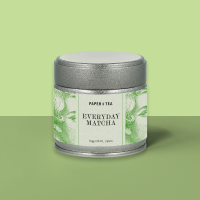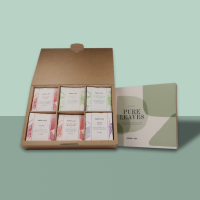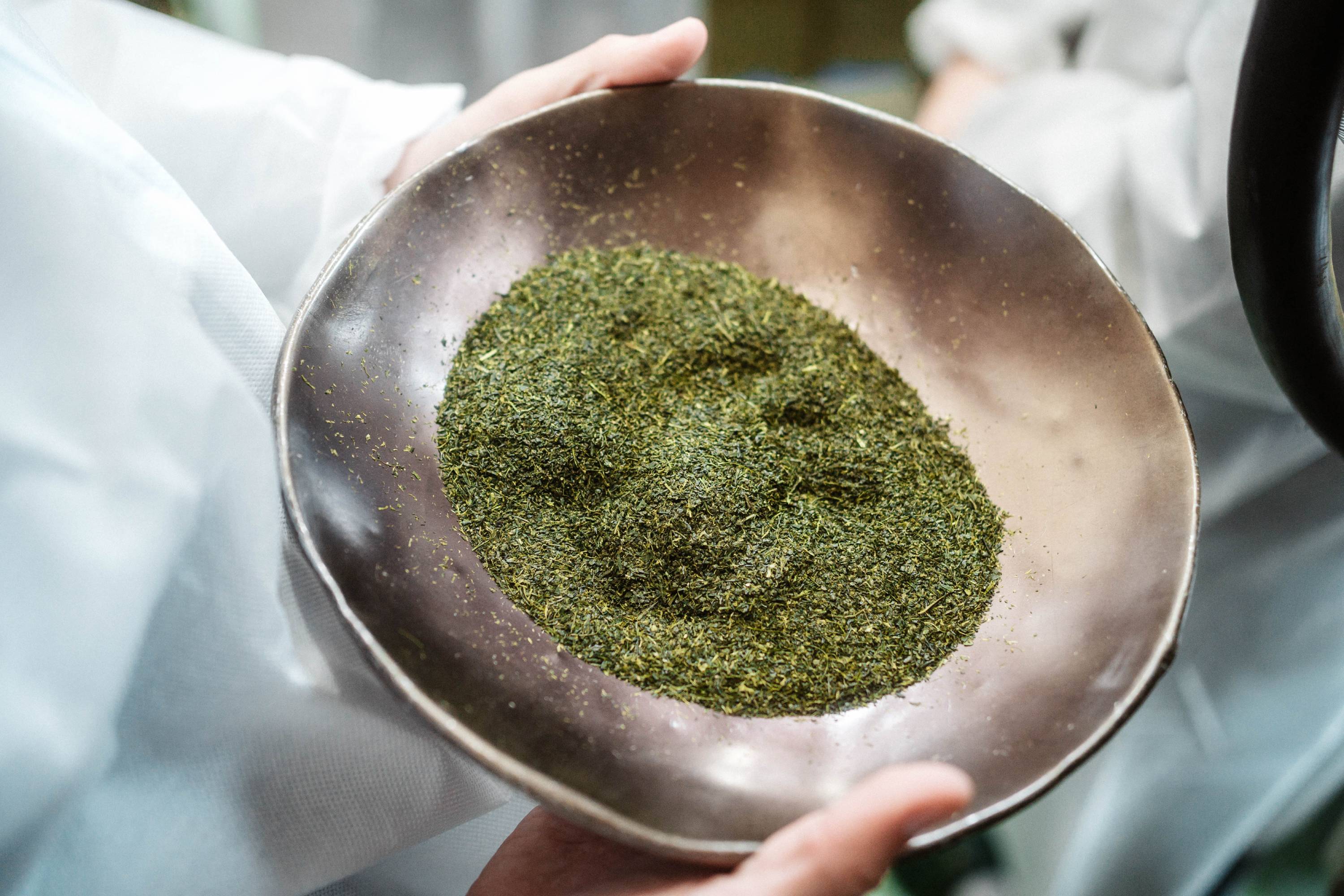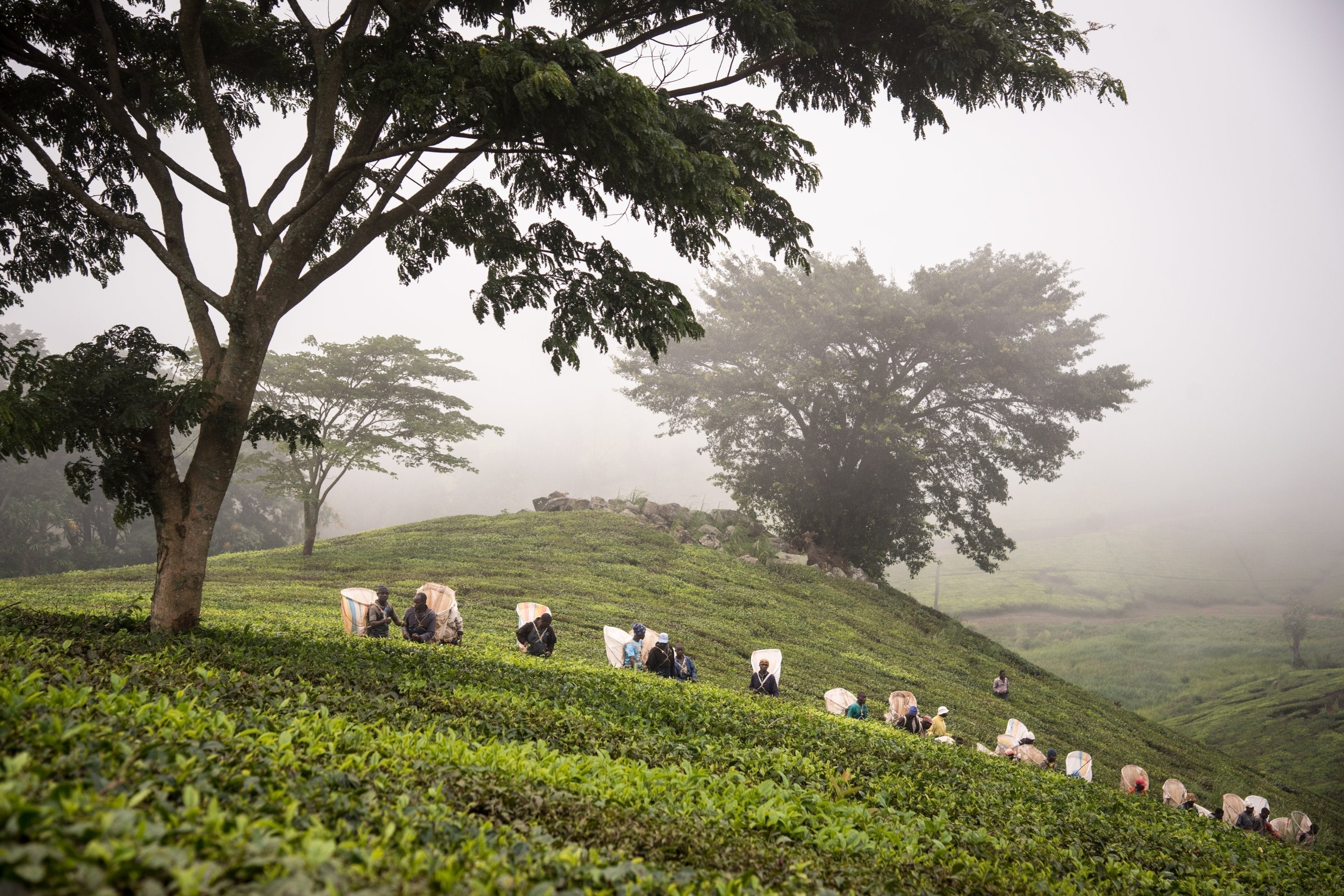Join us as we embark on a journey to the origins of our teas. This time, we take you to the Dhankuta region in the middle mountains of Nepal where the relatively young tea garden, Jun Chiyabari, is nestled on the slopes of the Himalayas. Here, unique tea specialties are crafted meticulously by hand, shining a well-deserved spotlight on Nepal as a tea-producing country. Established in 2000, the farm has focused on respecting nature, people, and the community. Here, we reveal how they bring this vision to life.
Welcome to the Himalayas: Discover Jun Chiyabari
Nepal is still an unconventional tea-growing country, but this farm is working hard to change that. Jun Chiyabari, founded in 2000 in Dhankuta in eastern Nepal, has quickly built up a reputation as a producer of exceptionally pure teas whose leaves come from the slopes of Himalaya's mid-hills. This is also reflected in its name, which translates to "moonlit tea garden".

Premium Organic Teas from the Himalayas
Established as an organic farm from the outset, Jun Chiyabari has been certified organic since 2012. By focusing on producing pure teas that reflect the purity of the Himalayas in their unparalleled tasting profiles, this innovative tea garden embraces limitless creativity, offering all flavors from white and green to black teas.
In Harmony with Nature
At an altitude of 1,650 to 2,200 meters, Dhankuta offers a cool climate with high humidity, similar conditions to those found in the world-famous Indian tea region of Darjeeling, just about 65 km to the east. Jun Chiyabari's tea plants are carefully harvested and artisanally processed with minimal human intervention in the fields. The tea garden is committed to minimal interference with nature, resulting in tea made from natural leaves that reflect the purity of their origins in the Himalaya.

Embracing Social Responsibility
Jun Chiyabari focuses all its actions on three pillars: People, Place, and Product. Their primary aim is to craft high-quality products while ensuring fair working conditions for employees and contributing to the community. Learn more about the social initiatives of this Nepalese tea farm.
Fair Work for Over 200 People
Jun Chiyabari is an integral part of the local community, a rural hill district in Nepal, and provides employment to over 200 people, most of whom are women. The tea farm is committed to offering a safe, healthy, and fair work environment for all employees and to promoting community development through social projects. o act as custodians and enhancers of the land they work. And to craft the best possible tea from its produce, together with its inhabitants.

Ways to Financial Independence
To enable them to generate additional income independently, Jun Chiyabari has been supporting their employees for years with one-off financial subsidies for the purchase of necessary means of production if needed, for example for pig farming. They don't have to repay smaller amounts. For larger projects, the company grants microloans to its employees and their families.
Uniqueness in a Tea Glass: Taste pure Quality
The young tea farm Jun Chiyabari in Nepal stands for sustainable and respectful tea cultivation. It is an impressive example of how respect for nature aligns with the careful processing of tea leaves and social commitment to the local community. The handpicked, organically certified teas preserve the pure taste of the Himalayas, bringing it home to our cups. Just like our Palace of Patan, a green tea specialty from the small Nepalese tea garden of Jun Chiyabari. Are you tempted to try a sip of the Himalayas?

























